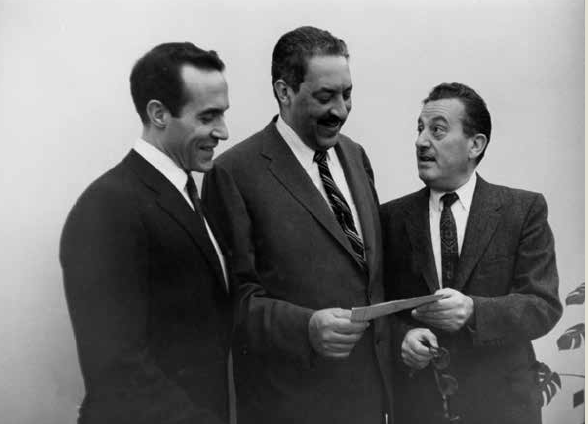1199’s Long History of Fighting for Reproductive Rights
September 6, 2022
The Union has consistently pushed gender equality up the labor movement’s agenda.

1199 is often credited with effectively combining union power with soul power, that is, marrying union rights with civil rights and racial equality. But its success could not have come without also addressing the issue of gender equality.
Among the Union’s guiding principles as enumerated in its constitution are: “to maintain, preserve and extend the democratic processes and institutions of our country; to advance, defend and protect civil liberties and civil rights; to eliminate all forms of discrimination and racism; and to aid in the adoption of legislation in the best interests of its members and the people generally.” Those principles have guided the ongoing fight to uplift and extend women’s rights.

Another major supporter of 1199 was the late Thurgood Marshall, the first African- American supreme court justice. He said at an 1199 event during the 1959 hospital organizing drive, “Your effort to organize the voluntary hospital workers could well be one of the most important organizing campaigns this city has ever seen. More power to you.”
It was Marshall who, as NAACP chief counsel, argued the landmark Brown v. Board of Education that separate educational facilities are inherently unequal because they violate the equal protection clause of the 14th Amendment.
This decision formed the basis for the extension of rights based on race, gender, age, sexual orientation. Such rulings include: the 1965 Griswold v. Connecticut judgment, which paved the way for legalizing widespread contraceptive use: the 1967 Loving v. Virginia decision on interracial marriage, and the 2015 Obergefell v. Hodges ruling which led to marriage equality. Each of these decisions has been enthusiastically celebrated by 1199 leadership and members.
By the 1970s, the Union had grown to be one of the largest in the city. Its contract gains were second to none, and it was hailed as among the most progressive and active in the nation. When it decided to organize in the South and beyond, the Union chose as its national chairperson, Coretta Scott King, the widow of the late Dr. Martin Luther King, Jr.
An activist in her own right, Scott-King assisted in many organizing drives. She identified as a feminist and was a staunch opponent of homophobia. She referred to herself as a sister 1199er, praising the strength and skill of its female leaders and members. She said in 1973, “Women, if the soul of the nation is to be saved, I believe you must become its soul.”
In that same year the Roe v. Wade ruling struck a mighty blow to our nation’s long history of reproductive control rooted in slavery and misogyny. After the ruling, 1199’s benefits program began funding abortions.
1199ers were increasingly sought out by progressive organizations. For example, 1199ers in great numbers attended the organizing meetings and the 1974 founding convention of the Coalition of Labor Union Women (CLUW).
The first chair of New York City CLUW was 1199er Judy Berek. Both in and outside the labor movement, 1199 also helped steer many women’s issues onto the wider labor’s agenda.
The 1199SEIU Training and Upgrading and Child Care programs were hailed as national models whose benefits dramatically raised the status of women within the workplace and in the greater society. Few unions have done as much to promote the health and wellbeing of women in our society.
The Union’s current President, George Gresham reaffirmed that commitment as the new of the Supreme Court’s shameful decision to overturn Roe v. Wade came in. He did not hesitate to echo the Union’s long history of supporting gender equality and reproductive rights, pledging that: “1199 SEIU stands firmly behind the right to choose and we will continue to fight tooth and nail to preserve this most basic freedom.”
The Union’s unparalleled track record is testament to its ability to understand and act on those concerns.
1199 Magazine - July / August 2022

